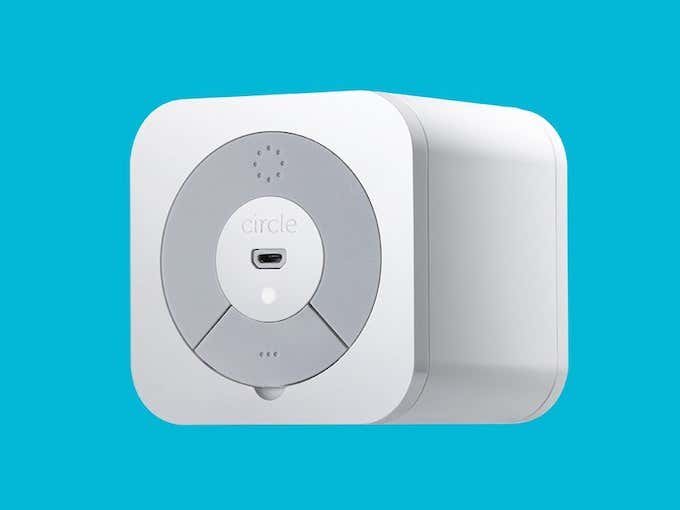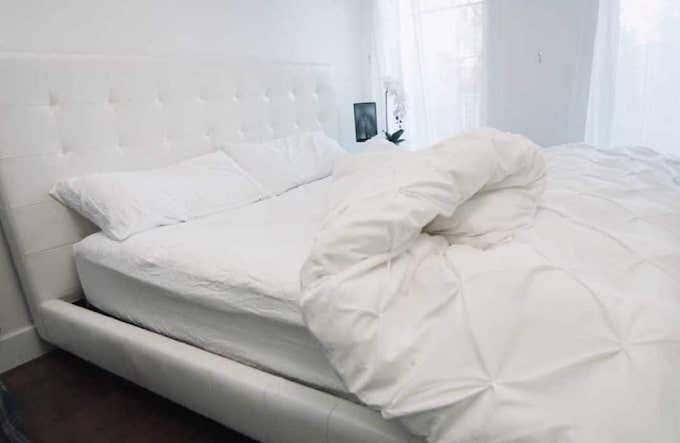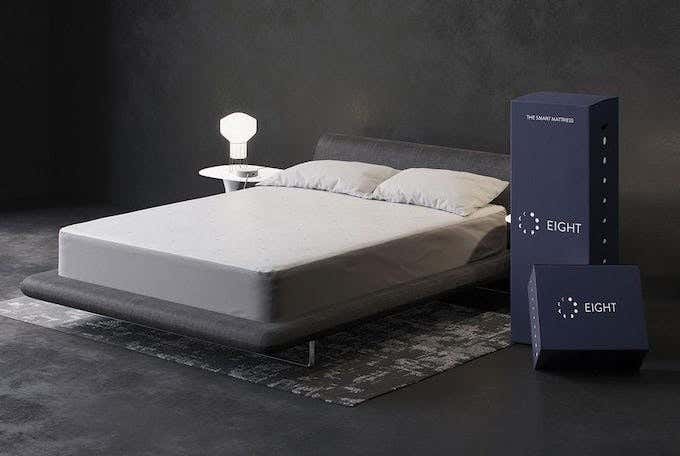But our sleeplessness can’t be blamed entirely on a fast-paced society and too many screens. It’s also due, at least in part, to sleep disorders. How many people do you know suffer from insomnia? How many people do you know snore? Small, seemingly insignificant habits can add up to poor sleep quality. Thankfully, there are solutions that don’t involve multi-night sleep studies where you feel more like a lab mouse than a human. The right smart devices can help you sleep smarter and improve your nighttime routines, so that you get a great night’s sleep every night. For many people, total quiet is the opposite of relaxing. A small amount of background noise can make it easier to relax because it can drown out more sudden sounds that might rouse you from sleep. If you live in the city, the sound of a loud car or a siren will affect the quality of your sleep even if it doesn’t wake you entirely. The Sound + Sleep SE creates white noise from one of 64 different profiles. The sounds don’t loop and provide a more authentic experience. This device uses “Adaptive Sound” technology that automatically adjusts the volume of its soundscapes if any sounds are detected that might wake the user. When you begin to feel sleepy at night, it’s not always because of fatigue—it’s due to a chemical being pumped out by your brain. The pineal gland is activated by darkness and starts producing melatonin. However, the number of lights around a city and inside the home (particularly blue light) disrupt this natural cycle in the body and make it harder to fall asleep. Smart lights like the Philips Hue bulbs can be programmed to dim gradually over a set period of time. This slow reduction of light simulates a sunset and can trigger your body to begin producing melatonin, resulting in feelings of sleepiness and a more natural desire to crawl into bed—because as you know, forcing yourself to go to sleep can be counterproductive. While a sunset triggers your body to feel sleepy, a sunrise does the opposite. The vast majority of people wake up abruptly because of an alarm clock, which negatively impacts your mood—and is just an awful way to start the day. However, waking up to a natural sunrise (or a lamp that simulates a natural sunrise) brings you out of sleep in a gentler way. You’ll wake up with more energy and will feel less groggy than you would otherwise. This is perfect for those that have to wake up before the sun. If you’re serious about improving your sleep, one of the best investments you can make is a sleep tracker. These devices are either worn, or slid under your mattress (our recommendation is the latter) and measures the various stages of sleep. Sleep trackers can tell you how long it took you to fall asleep, how much time you spent in the various stages of sleep, and much more. The Beautyrest Sleeptracker Monitor analyzes your breathing patterns, sleep cycles, and much more to provide you with detailed analytics about how you sleep. If you want to keep track of your sleep but can’t afford a dedicated tracker, there are other alternatives. For example, you can download a number of different iOS apps that can help you track your sleep. Sometimes your quality of sleep is less about the sleep itself and more about getting there. Late-night Twitter, YouTube, and Instagram binges can keep even the sleepiest person awake long past their bedtime. Circle Home gives you control over Wi-Fi on individual devices, provides usage statistics, and allows you to create time limits after which the device automatically shuts off Wi-Fi access. If you find yourself unable to stop browsing the web at a certain time, the solution is easy: just shut off access to it until the next morning. Of course, you can always disable the Circle Home in an emergency (like if you need to finish some work online) but it’s a good way to break a bad habit.
SmartDuvet (SmartDuvet)
Few things interrupt sleep like being too hot or too cold. The SmartDuvet gives you point-by-point control over what temperature you want your bed to be, and it even has two separate zones for couples to utilize. The technology prevents the build-up of humidity, reduces sweating, and is even said to help prevent bed bugs. The craziest part? The SmartDuvet actually makes itself in the morning by inflating different pockets of air throughout its design. It’s the future in a box, and it might be just what you need to sleep easier at night.
Eight Sleep Smart Bed (Eight Sleep)
There is no product recommendation for this one because the right type of bed differs for so many people. Smart beds can be found at all different price points, from an affordable $1,000-$2,000 price range all the way up to an eye-watering $36,000. The key is that these beds automatically adjust based on the user’s biometric data to keep the sleeper as comfortable as possible. A smart bed is the solution for the person that has tried everything else and cannot seem to fall asleep, no matter what.

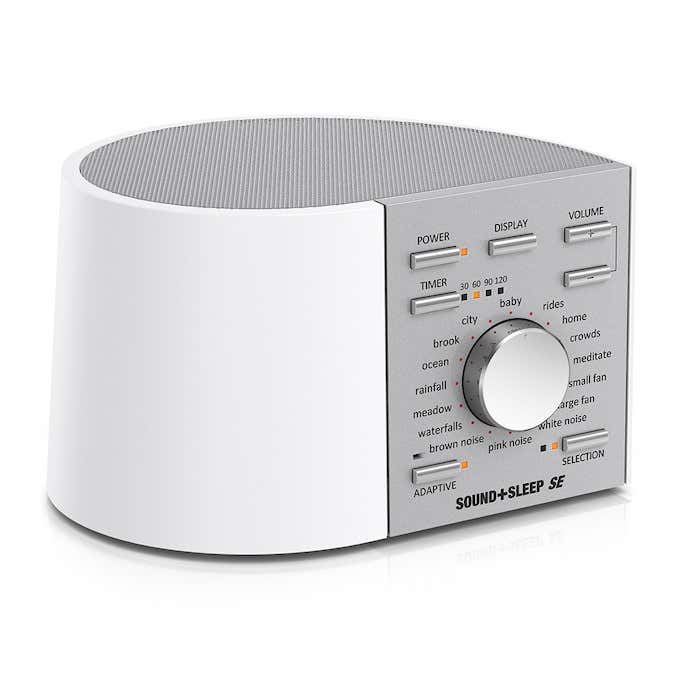
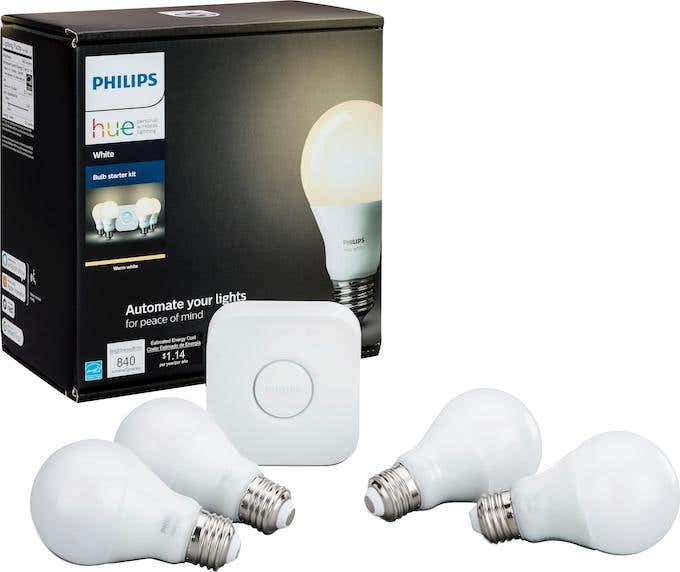
![]()
